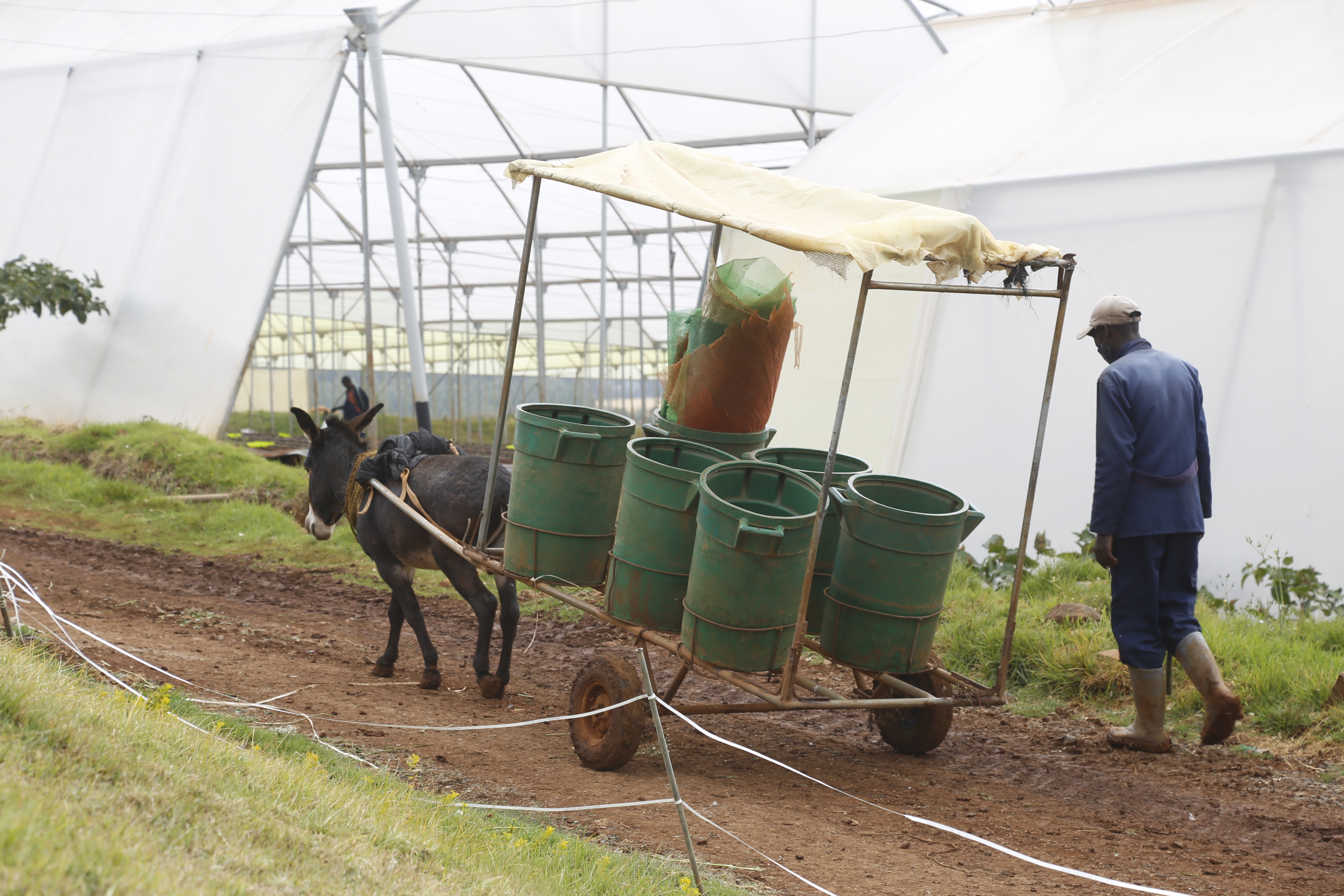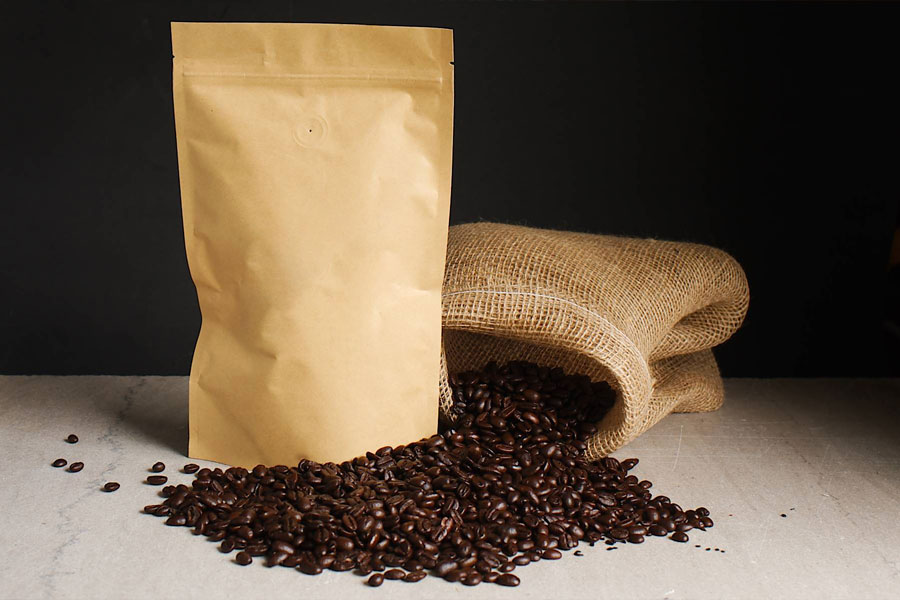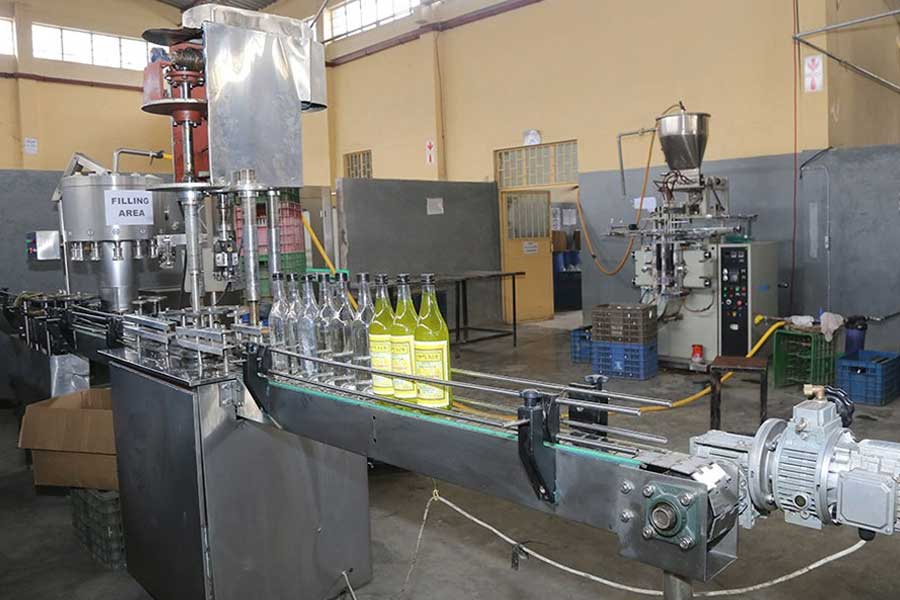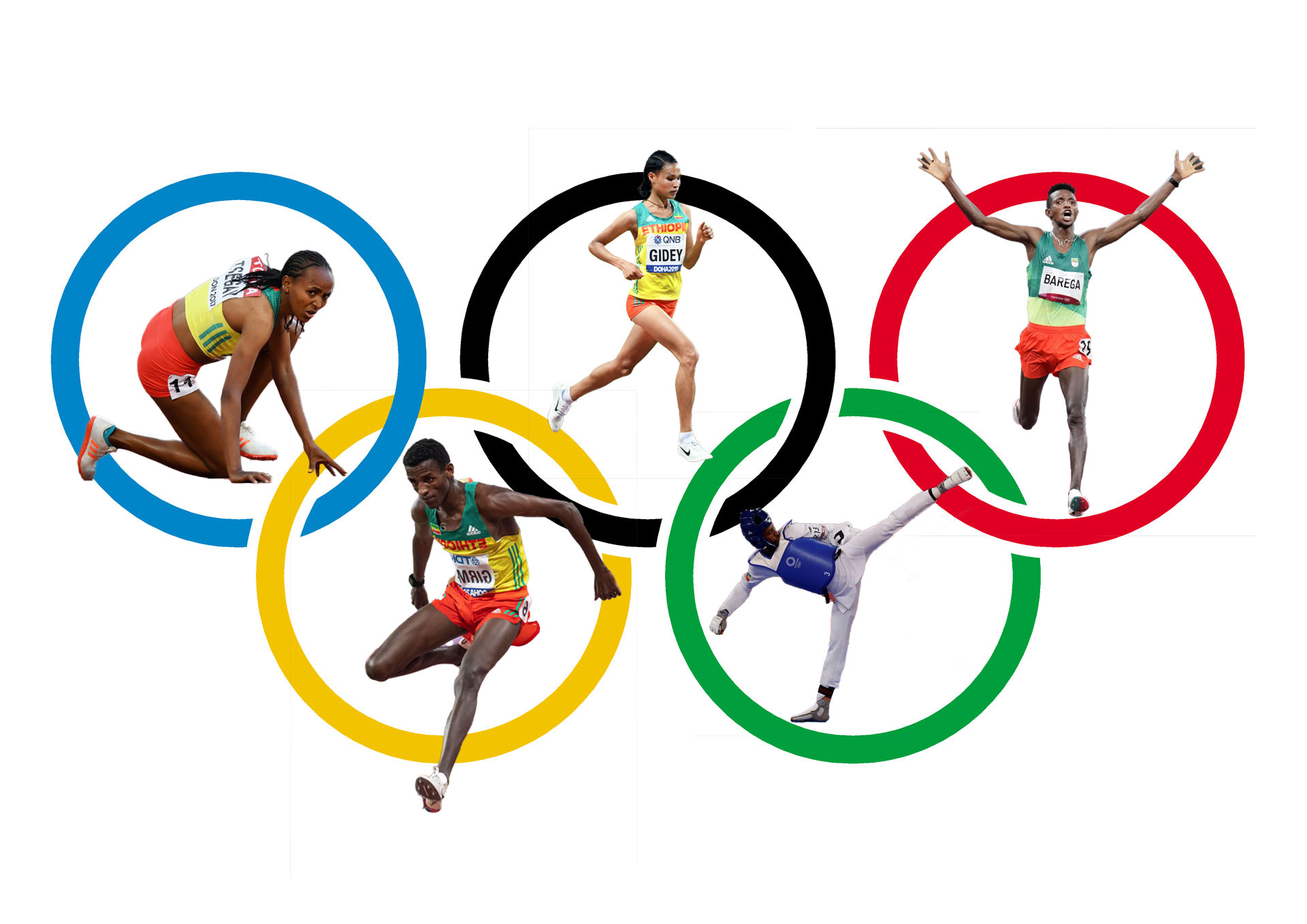
Radar | Jun 25,2022
A new aluminium and plastic bottle cap factory will join the market to supply both domestic and export markets.
The factory is an expansion project of the liquor producing company, Ponu Monu, that underwent a 54 million Br expansion to produce three million bottle-caps of different sizes a day. The expansion will create 60 employment opportunities.
Having begun production at the beginning of last month, the company eyes pharmaceutical and liquor producers as its major clients.
The machines for the expansion were imported from China, and training was given to employees on the factory’s premises in Gerji. The factory sits on a 2,500Sqm plot of land. Ponu Monu sources raw materials from India and China.
“We wanted to minimise the cost to import the caps for the liquors that we produce,” Abraham Tilahun, major shareholder and manager of the company, told Fortune.
The nearly two-decade-old company used to spend 120,000 dollars annually, excluding shipping costs and taxes, to import caps. After the expansion began, the company received offers from 20 liquor and manufacturing companies interested in ordering their caps locally.
Ponu Monu produces seven types of liquor, including ouzo and gin under the brand name Marry. The liquors contain alcohol content levels between 24pc to 43pc.
The company also produces a whiskey called Marry Cane scotch, which has a 43pc alcohol content and comes in 750ml bottles.
Ponu Monu, co-owned by a Canadian businessman, also imported a new recycling machine to utilize a mixture of 80pc burnt oil and 20pc gasoline to run a boiler machine that saves around 2,000 litres of gasoline a month, according to Abraham. It also plans to open another factory for the production of juices and milk in the town of Gelan in Oromia Regional State.
Some of the other producers of bottling caps and corks in Ethiopia are CGF-Crown Cork & Aluminum Cap Manufacturing Factory, Ethiopian Crown Cork & Can Manufacturing, Daylight Applied Technologies and Metal Crown. Nonetheless, local demand is not met by local supply, with Spain, India and Egypt being some of the major countries from which caps and corks are imported.
“The country has been importing alcohol products and the raw materials for producers, such as bottling caps, at a considerable cost at a time of shortage of hard currency," said Mulugeta G.Medhine (PhD), an expert in marketing for over two decades.
PUBLISHED ON
Dec 05,2018 [ VOL
19 , NO
971]

Radar | Jun 25,2022

Radar | Dec 19,2020

Fortune News | May 25,2019

Commentaries | Sep 27,2025

Fortune News | Apr 22,2022

Fortune News | Sep 30,2023

Fortune News | Sep 30,2023

Radar | Jun 07,2025

Fortune News | Feb 26,2022

View From Arada | Aug 21,2021

Dec 22 , 2024 . By TIZITA SHEWAFERAW
Charged with transforming colossal state-owned enterprises into modern and competitiv...

Aug 18 , 2024 . By AKSAH ITALO
Although predictable Yonas Zerihun's job in the ride-hailing service is not immune to...

Jul 28 , 2024 . By TIZITA SHEWAFERAW
Unhabitual, perhaps too many, Samuel Gebreyohannes, 38, used to occasionally enjoy a couple of beers at breakfast. However, he recently swit...

Jul 13 , 2024 . By AKSAH ITALO
Investors who rely on tractors, trucks, and field vehicles for commuting, transporting commodities, and f...

Oct 18 , 2025
The political establishment, notably the ruling party and its top brass, has become p...

Oct 11 , 2025
Ladislas Farago, a roving Associated Press (AP) correspondent, arrived in Ethiopia in...

Oct 4 , 2025
Eyob Tekalegn (PhD) had been in the Governor's chair for only weeks when, on Septembe...

Sep 27 , 2025
Four years into an experiment with “shock therapy” in education, the national moo...